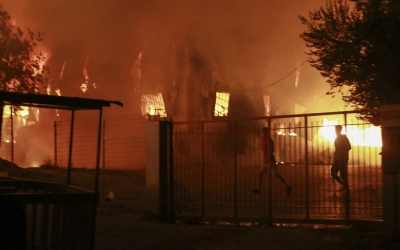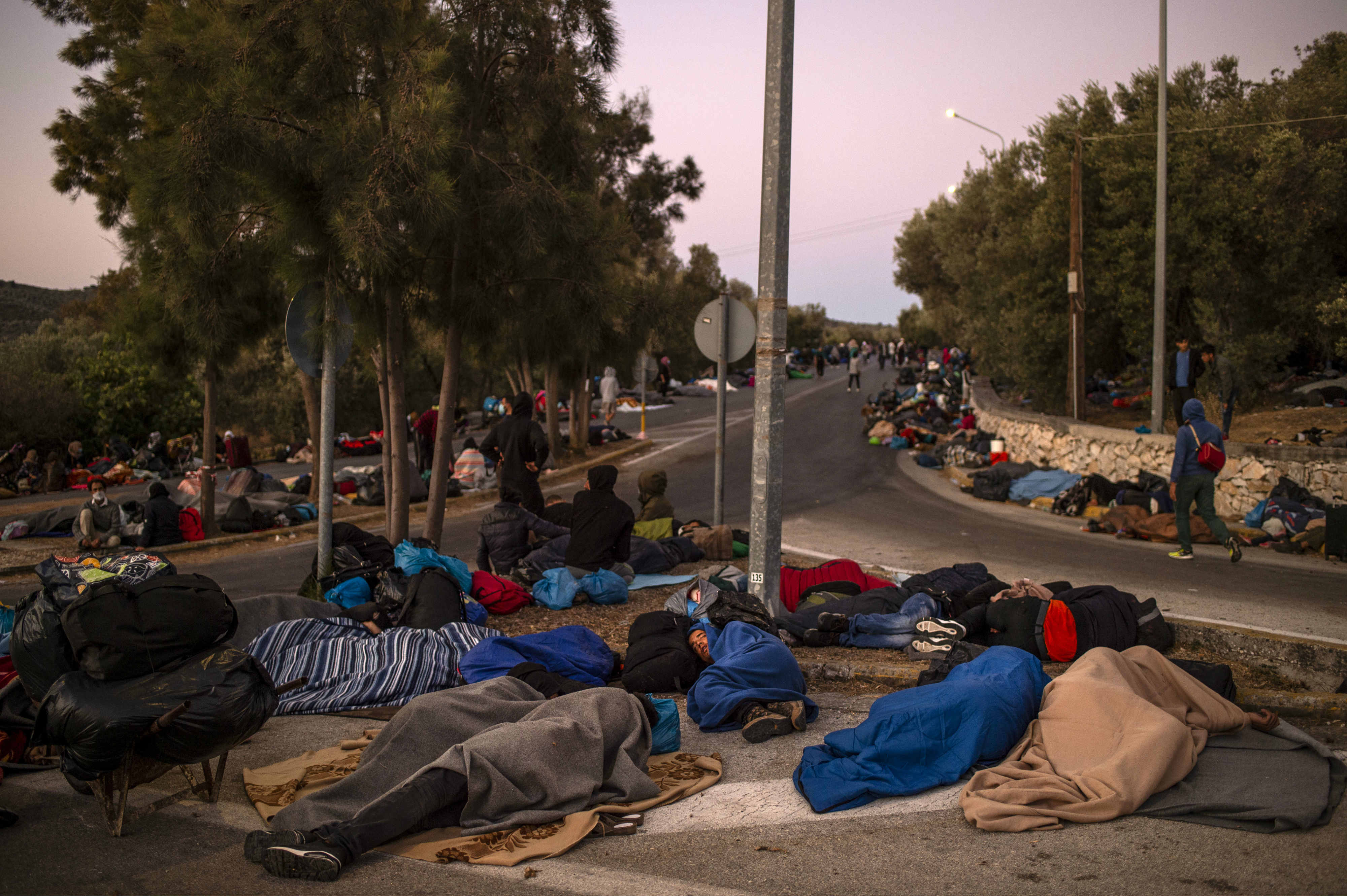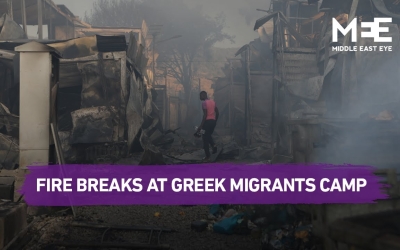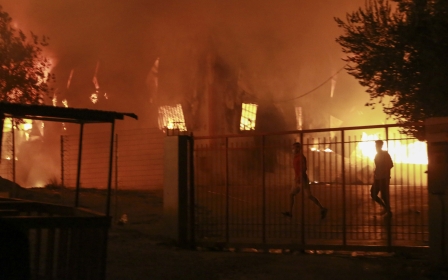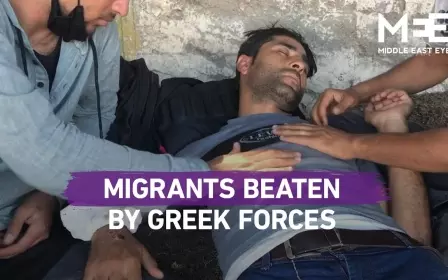Greece races to shelter thousands of refugees after Lesbos camp fire
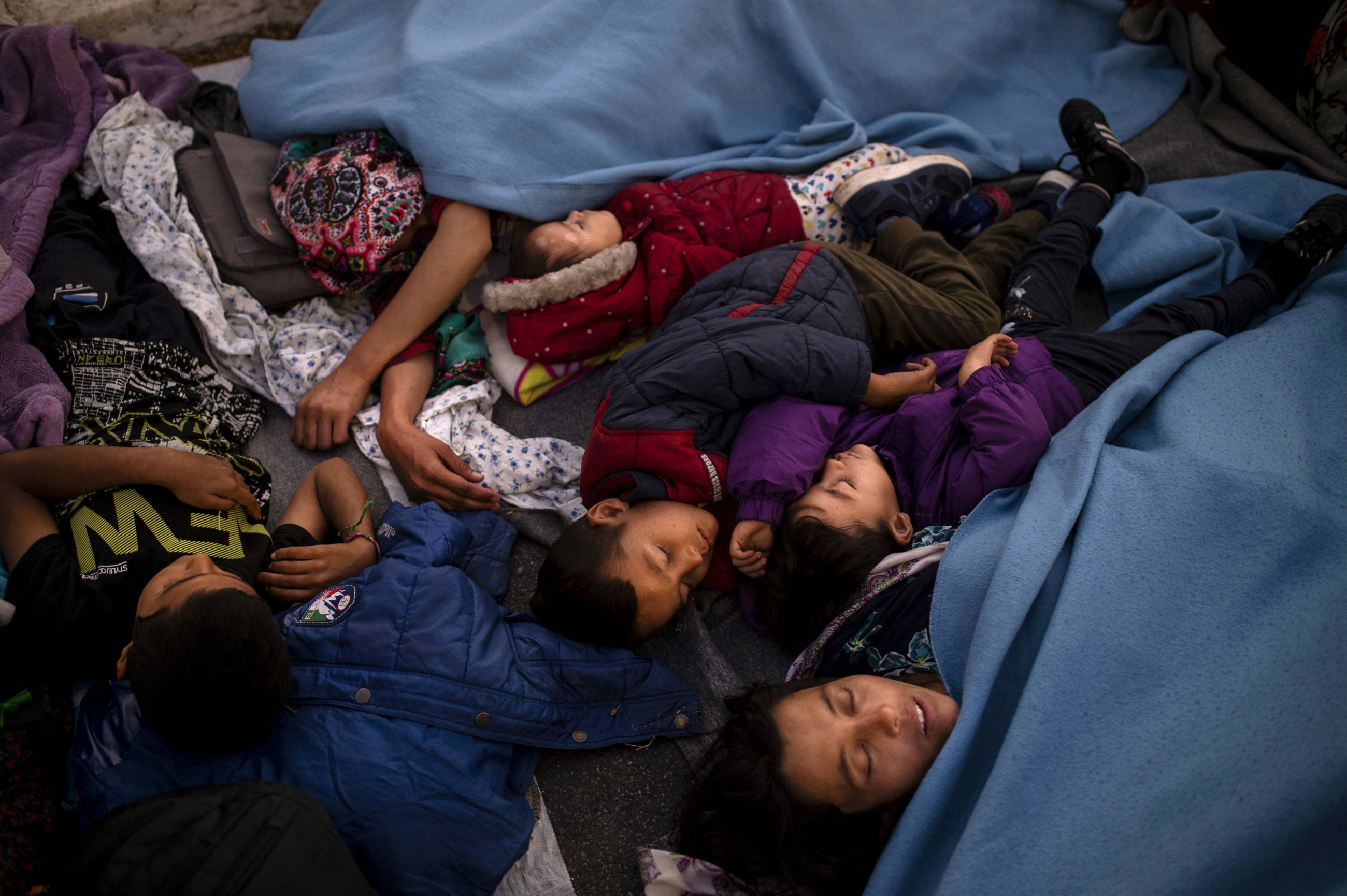
Thousands of asylum seekers on the Greek island of Lesbos have been left camping on roadsides after the country's largest camp burnt down, with the government saying it would take days to find housing for all of them.
Desperate families, many with young children, spent a second night in the open on Thursday, some without tents or basic bedding.
Several of the homeless trekked to the nearest villages for water and other supplies.
The fire late on Tuesday at Moria camp, an overcrowded refugee facility, sent thousands fleeing for safety into surrounding olive groves.
While nobody was seriously hurt, the blaze destroyed the official part of the camp, which housed 4,000 people, ministers said.
A second fire, late on Wednesday, destroyed most of the remaining camp where another 8,000 lived in tents and makeshift shacks around the perimeter, the migration ministry said in a statement on Thursday.
Some who fled the fires on Tuesday and Wednesday night tested positive for the coronavirus after an outbreak of the disease in the camp, further complicating attempts to round up the homeless and get them into alternative accommodation.
"Today we will undertake all necessary actions to house families and the vulnerable while food distribution continues," government spokesman Stelios Petsas told reporters.
Bracing for a possible surge in Covid-19 cases, authorities were sending 19,000 test kits to the island, Reuters reported.
Petsas added that a passenger ferry had docked at the island's port of Mytilene to house families.
The migration ministry said the ferry had been sent to accommodate hundreds of people ahead of the expected arrival of European Commission Vice-President Margaritis Schinas to inspect conditions on the island.
Two Greek navy vessels would provide additional sleeping space, the ministry said.
Earlier, Greek authorities had sent 406 unaccompanied children and teenagers from the camp - notorious for its poor living conditions - to the mainland on three chartered flights.
The children have been tested for the coronavirus, and will be housed in "safe" facilities in northern Greece, the government said.
But thousands more people remained stuck in Lesbos with nowhere to sleep and little to eat.
Petsas said Tuesday's fire, which reduced the Moria camp to a mass of smouldering steel and melted tent tarpaulin, was started by asylum seekers reacting to quarantine measures after Covid-19 infections were detected. He did not provide evidence.
"Some do not respect the country hosting them. They take advantage of any excuse to set every solution on fire," he said.
Officials have declared a four-month emergency on Lesbos and flown in additional riot police, AFP reported.
Greece's public health authority EODY said eight of the 35 positive cases had been located and isolated, along with a significant number of their close contacts.
Medical staff from the World Health Organisation are expected in Lesbos on Thursday to begin tests on asylum seekers and locals, EODY chief Panagiotis Arkoumaneas told reporters on Wednesday.
European countries from Germany to Norway, along with EU chiefs, have responded with offers of help as calls intensify for urgent reform of the bloc's asylum system.
Since becoming one of the main gateways into Europe for asylum-seekers in 2015, Greece has built dozens of detention centres around the country.
But with other European nations accepting only a small trickle of refugees, thousands remain trapped in the Greek camps in usually dismal conditions.
Greece's conservative government has also toughened its asylum restrictions, slashing cash benefits and accommodation provisions to discourage refugees.
Middle East Eye delivers independent and unrivalled coverage and analysis of the Middle East, North Africa and beyond. To learn more about republishing this content and the associated fees, please fill out this form. More about MEE can be found here.


